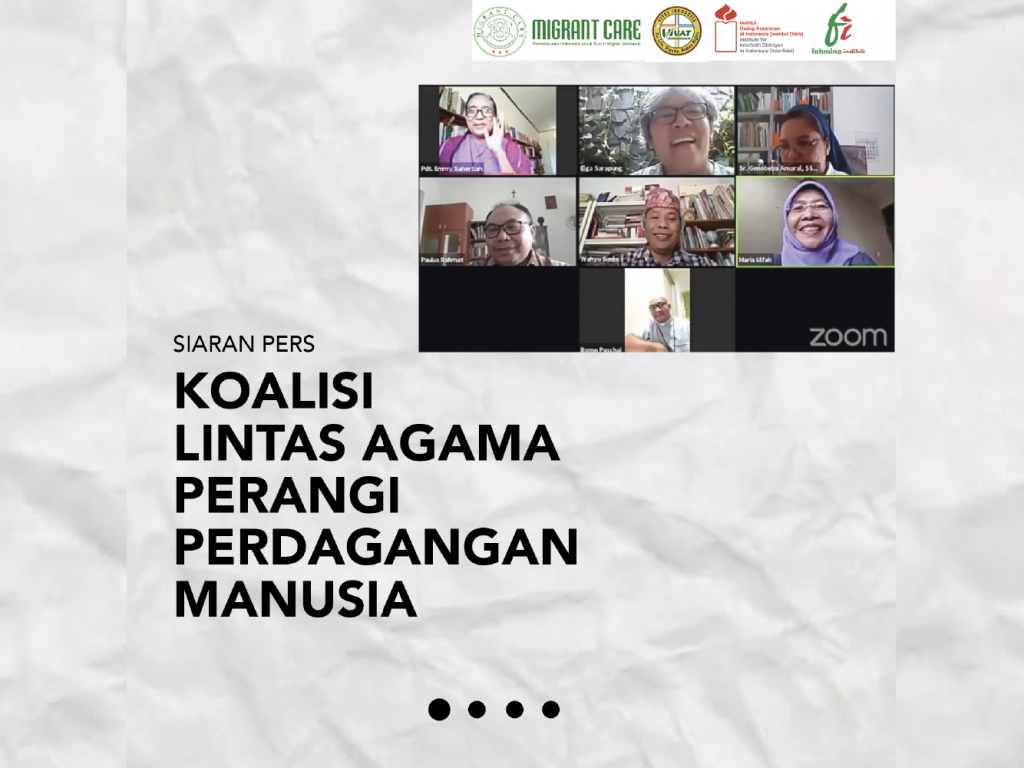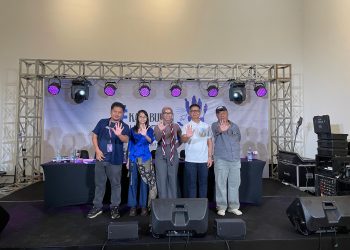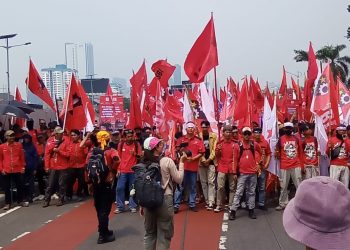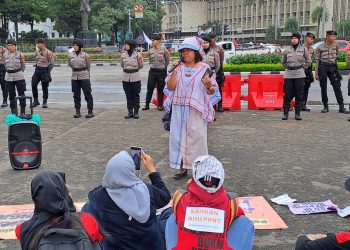Indonesia, July 29, 2020 – Ahead of the commemoration of the World Day Against Trafficking in Person Day which is celebrated on 30 July each year, Migrant CARE, Vivat Indonesia, Fahmina Institute, and the DIAN / Interfidei Institute, which are part of the Zero network The Human Trafficking Network (ZTN) organized a virtual press conference with interfaith activists titled “Combating Human Trafficking in the Pandemic”.
“We are representatives of activists and religious leaders, 34 institutions that have a vision to fighting human trafficking, formally joining the Zero Human Trafficking Network coalition in Labuan Bajo in 2018,” said Elga Sarapung, Director of the DIAN / Interfidei Institute and Secretary of ZTN. The role of religionists is believed to be the main key to eradicating trafficking in persons especially in the regions of the Indonesian Migrant Workers base and the Indonesia-Malaysia border. “We want to (combat human trafficking, ed) become a joint movement, especially for religious communities and religious leaders,” he added.
The Covid-19 pandemic, which has an impact on all sectors, is intertwined with an increasingly vulnerable human trafficking situation. Sr. Genobeba Amaral, SSpS., From VIVAT Indonesia, told of her experience accompanying trafficking victims with the bride order mode. “It just happened last November, the victim was lured to find a mate in Taiwan through chat messenger. After being moved to several cities for the marriage process, the victim was suspicious because her identity had changed and then reported to us and we brought it to the shelter, “Sister Geno said. This phenomenon is recorded in the SYMPHONY of PPA (Online Information System for the Protection of Women and Children), Maria Ulfah as Commissioner of the National Commission for Women, added her notes. “PPA’s SYMPHONY data shows that trafficking victims are mostly women or girls. This is due to unequal power relations in which there are gender inequalities, “he said. He also added the need for systemic preventive measures from upstream to downstream. “Upstream we have to think about how families are protected from this trafficking trick. There is also a cultural factor that is the reason for letting trafficking occur – the diversity can enter to make awareness efforts. The role of government also needs to be strengthened, “he added.
In addition to the new approaches that use technology utilization, the issue of assisting and reintegrating victims is also a challenge for activists in the field. Wahyu Susilo, Executive Director of Migrant CARE reminded the importance of protection for activists, such as the global theme of this year’s Day Against International Trafficking in Persons – Committed to The Cause: Working on The Frontline to End Human Trafficking. “In this pandemic, in addition to barriers to mobility in services for victims of human trafficking, securitization policies that have the potential to criminalize activists who defend human trafficking victims also occur,” concluded Wahyu.
About the Organizer
Zero Human Trafficking Network (ZTN) is a coalition of various civil society organizations and interfaith social institutions that have a vision of “Zero human trafficking”. ZTN is committed to opposing human trafficking and fighting modern slavery in its various forms in Indonesia, Southeast Asia and throughout the world. This coalition was formed based on the agreement of the participants of the Anti-Trafficking Consultation Group Meeting in Labuan Bajo, Flores, NTT, from 31 October to 2 November 2018.
More about ZTN can be read in the inaugural bulletin ‘Memoria Passionis’ which can be downloaded via the following link http://gg.gg/buletinZTN










